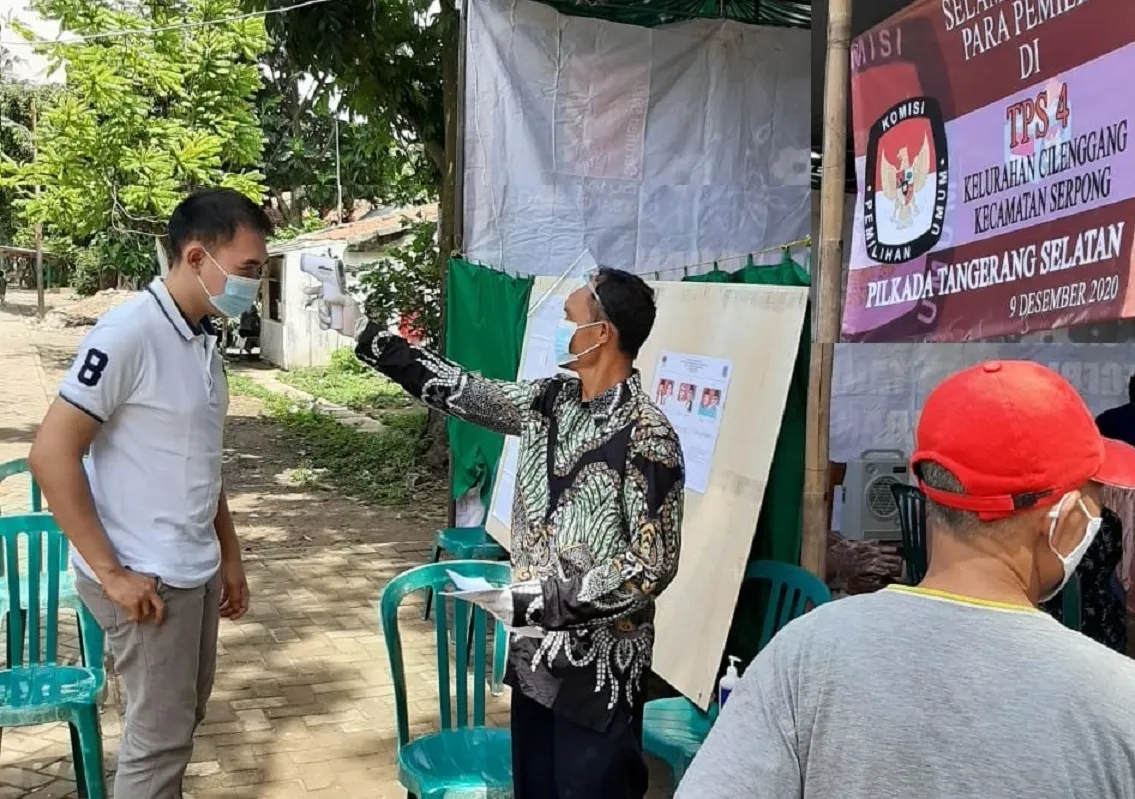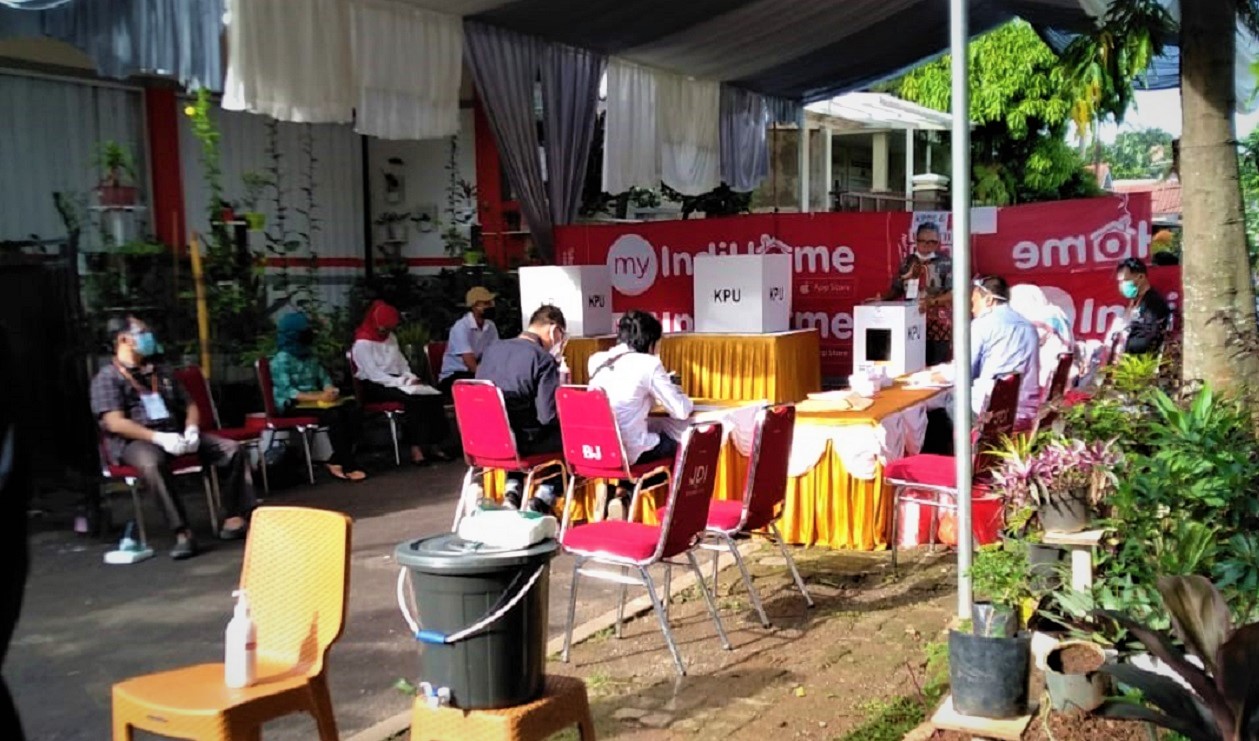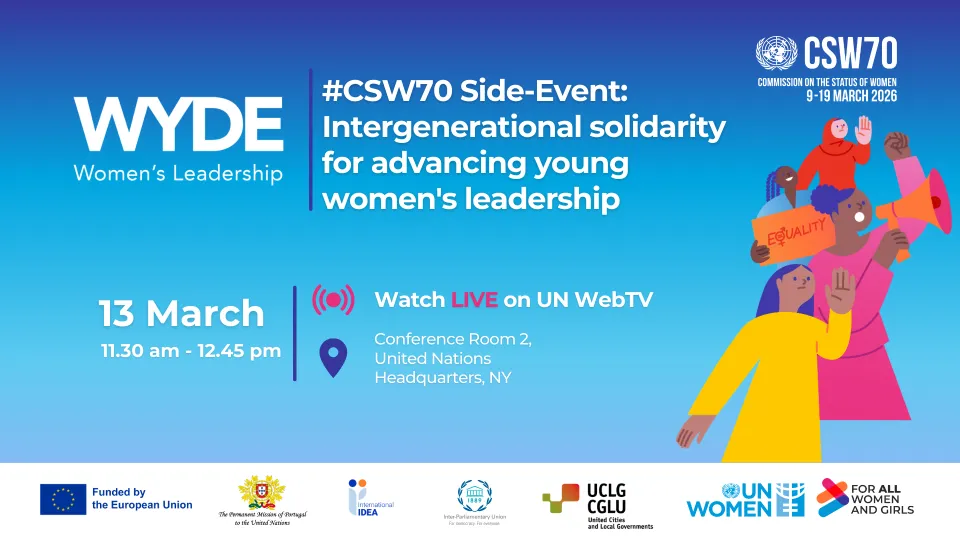Indonesia’s Big-size COVID-19 Elections – What to Watch For?

Indonesia’s Head of Region elections (Pilkada) involving a little more than 100 million voters to elect 9 provincial governors, 37 mayors and 224 heads of regency (Bupati) are simultaneously held today. This is the largest one-day election held during the COVID-19 pandemic eclipsing the US General Elections, which, although larger in the number of voters, were held in more than one day through early-voting facilities.
Apart from the now-normal health and safety protocols, such as mask-wearing, hand-washing and temperature-checking requirements, the Indonesian electoral management body; the General Elections Commission (KPU), has limited the number of voters per polling station to 500 to reduce crowding. Voters are also not allowed to bring children to the polling stations in an attempt to reduce the risk of getting infected. Individual voters are also recommended to vote at specific time slots, which does not seem to matter now that it looks like the polling stations are not busy during the first few hours of voting (see photo).

What to watch for?
There are three things to watch in the aftermath of these elections, i.e. (1) the level of voter turnout; (2) implementation of the electronic vote recapitulation system; and (3) how uncontested candidates fared against ‘blank box’.
1. Voter Turnout
There have been long-standing concerns that voter turnout would be lower when elections are held during the pandemic, primarily due to voters’ uneasiness about leaving their homes to cast their votes. International IDEA data shows that most elections held until 11 November 2020 have had lower voter turnouts (see figure below).
come out and vote. However, Indonesia’s persistent poor record in combatting COVID-19 might deter voters. Souce: International IDEA.
2. Implementation of the Vote Recapitulation Information System (Sirekap)
Quite in the last minute, the KPU decided to use a brand-new information system—popularly known as Sirekap—to assist in recapitulating counted votes. This system relies on untested mobile and information technology. Commission II of the Indonesian lower house (DPR) has insisted that Sirekap is merely “experimental” and is used “to assist” the speedy publication of results. Using the most recent test results as benchmark, the Election Supervisory Agency (Bawaslu) expressed concern over Sirekap’s functionality, thus mirroring worries already voiced by civil society activists. Through their press conference on 4 December, Bawaslu requests that the KPU provides an alternative vote recapitulation system in case Sirekap fails. None has been devised by the KPU so far.
3. The ‘Blank Box’ phenomenon
Continuing recent trends, head of region elections are increasingly contested by only a single candidate ticket, thus competing against a ‘blank box’. Political parties in these regions have colluded and cooperated to back the same ticket. As can be seen in the Table below, the number has been increasing, thus worryingly affecting the quality of democracy in the country.
Year |
Single-ticket Elections |
|
# |
% |
|
Prior to 2015 |
0 |
0 |
2015 |
3 |
1.1 |
2017 |
9 |
8.9 |
2018 |
16 |
9.4 |
2020 |
25 |
9.3 |
As discussed in a June 2019 seminar on Indonesia’s electoral system reform where International IDEA participated, Marcus Mietzner wrote, “… Indonesia’s electoral system is also ill-equipped to allow for expression of dissatisfaction with the system as a whole. This became evident in the 2019 elections, when many human rights activists and other progressive voters found both candidates in the presidential race unelectable. As a result, they considered abstaining from the vote or casting a spoilt ballot.” Indonesian law requires the candidate to win against the ‘blank box’ in order to be elected. Throughout history, the ‘blank box’ has only won once.
The jury is still out on the outcome of these historic COVID-19 elections. Let us all follow how they unfold.




